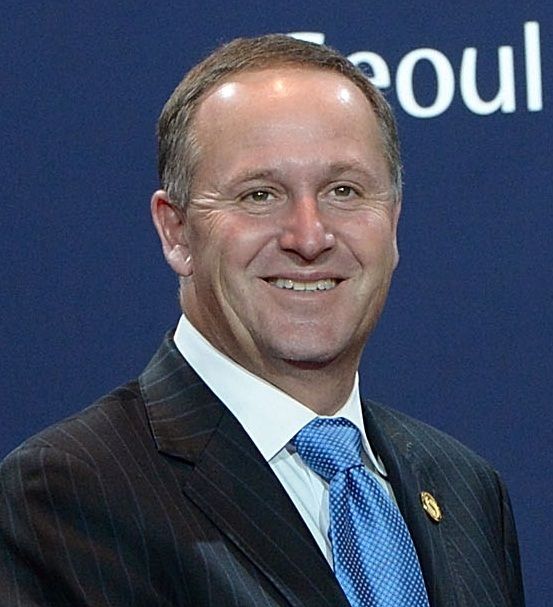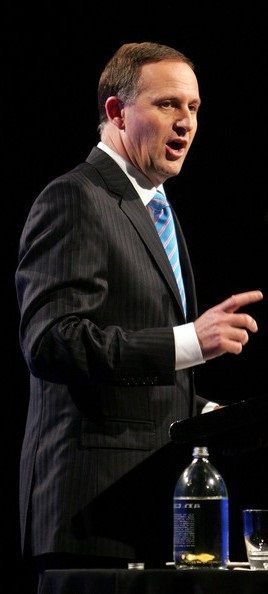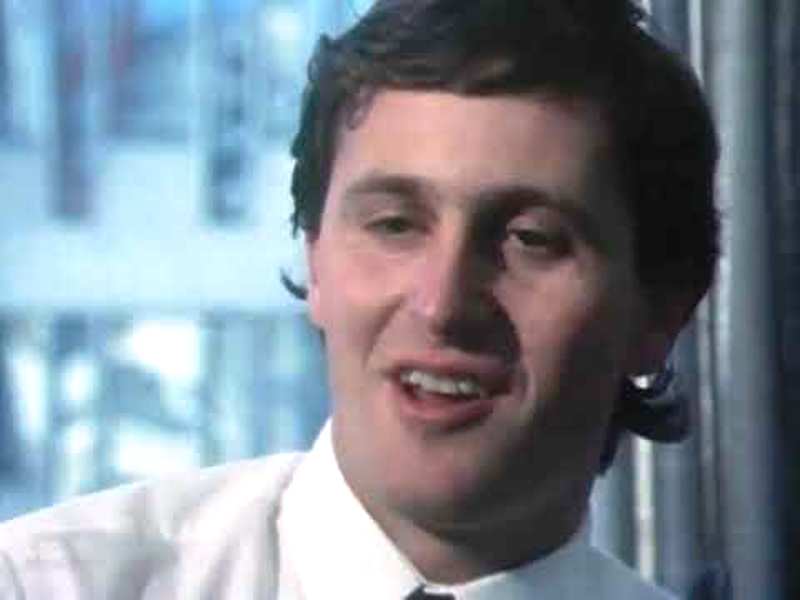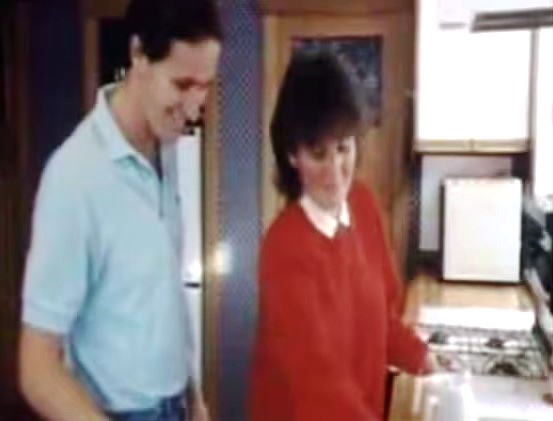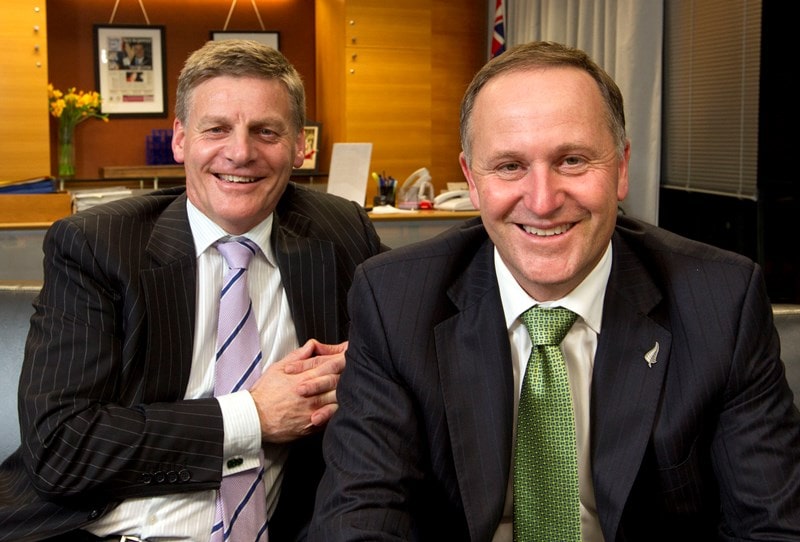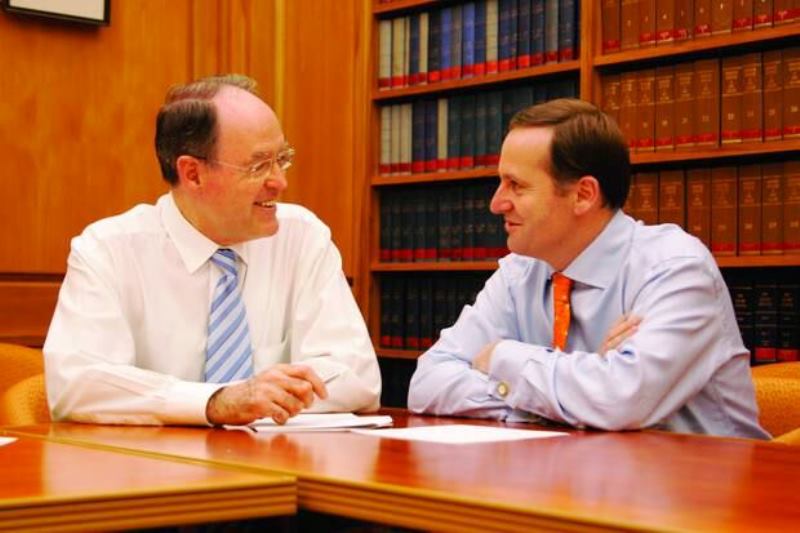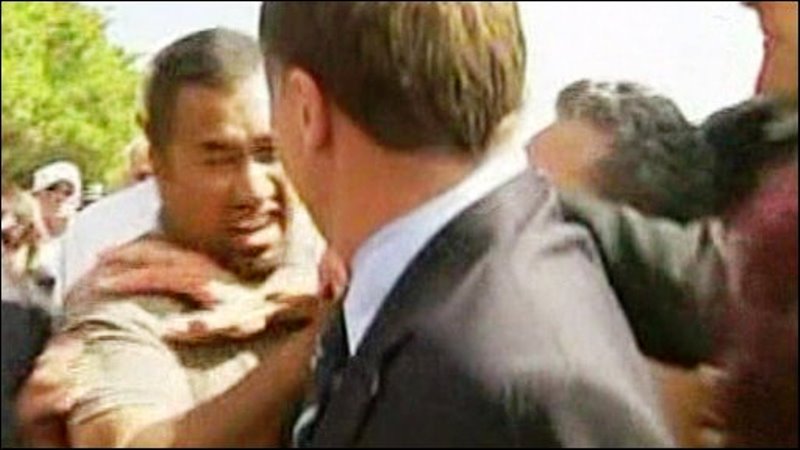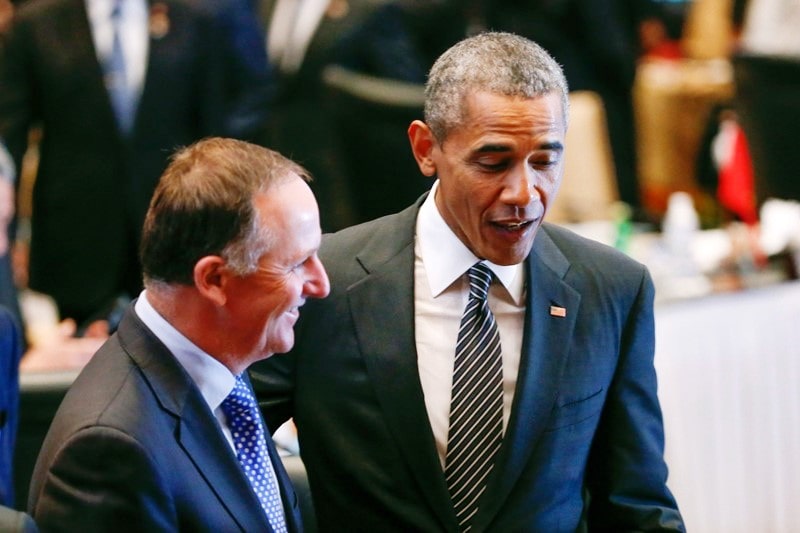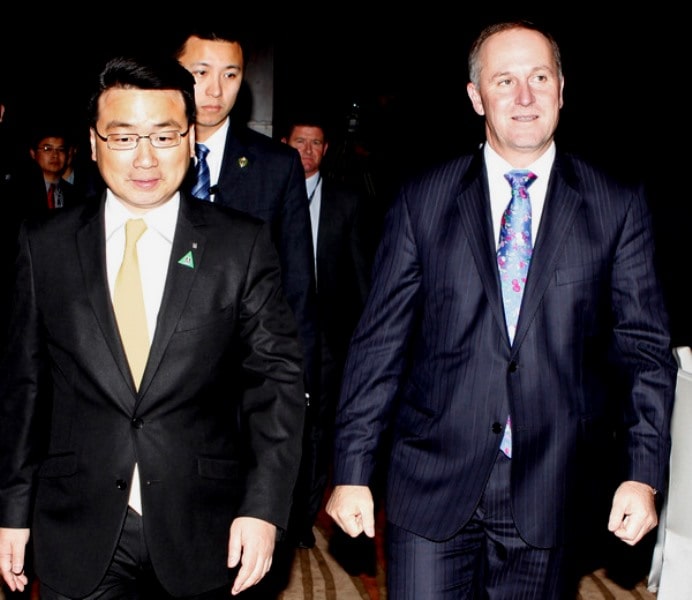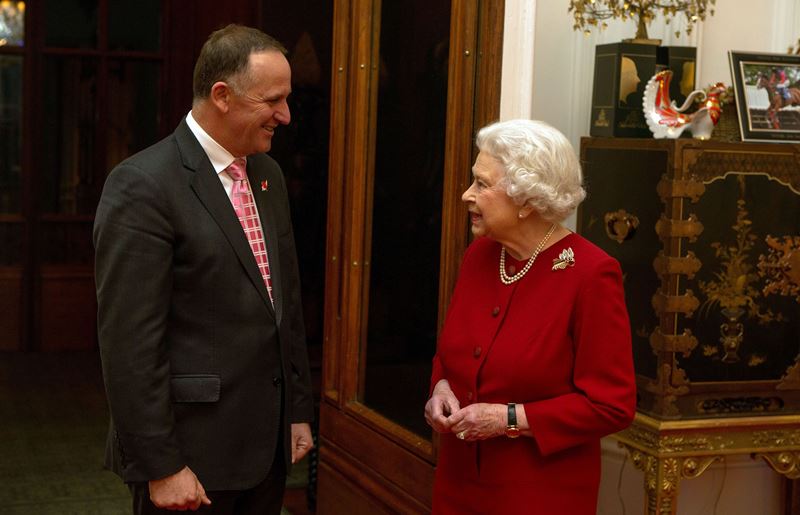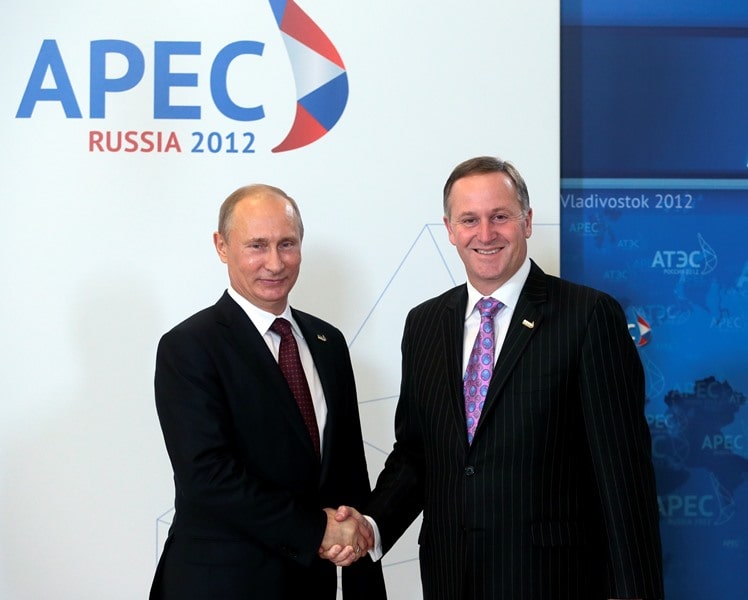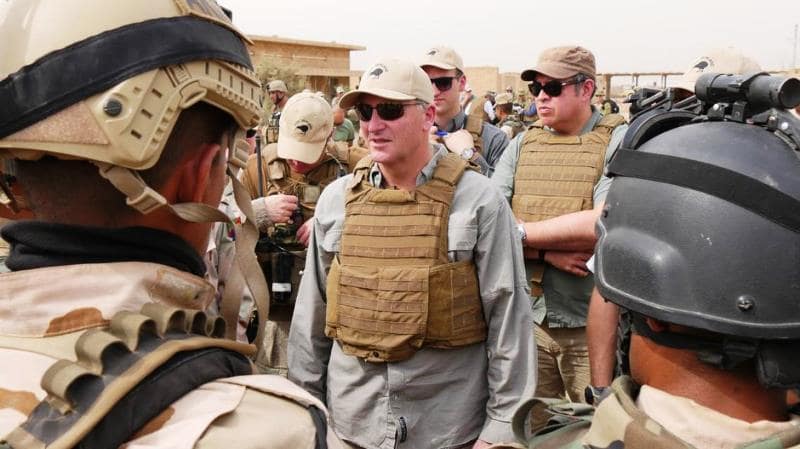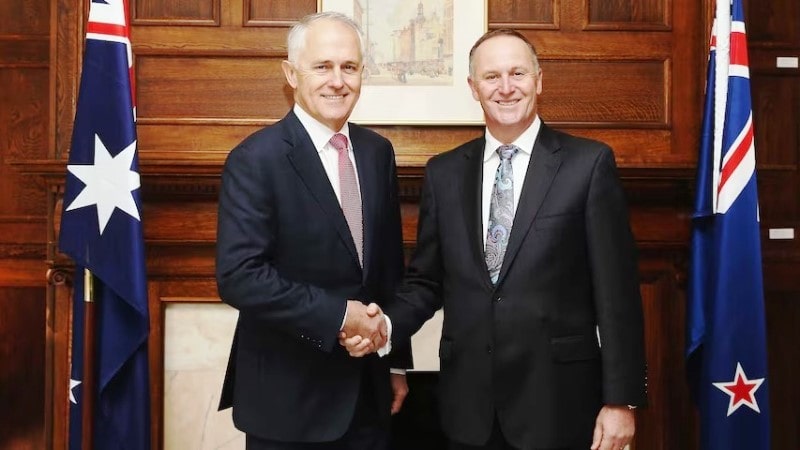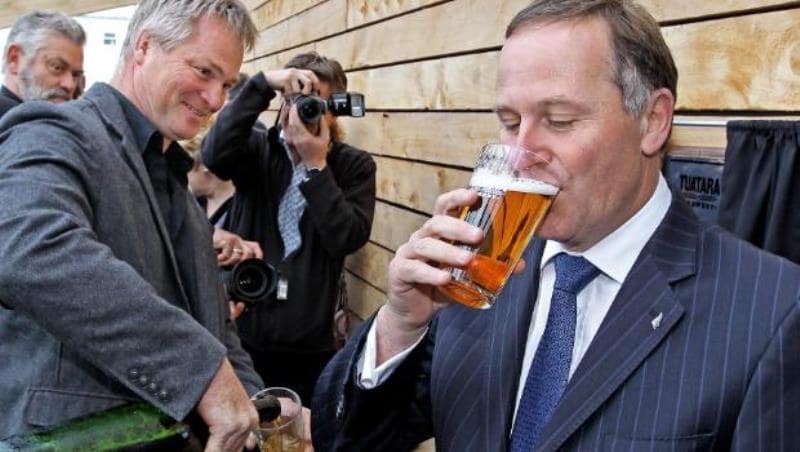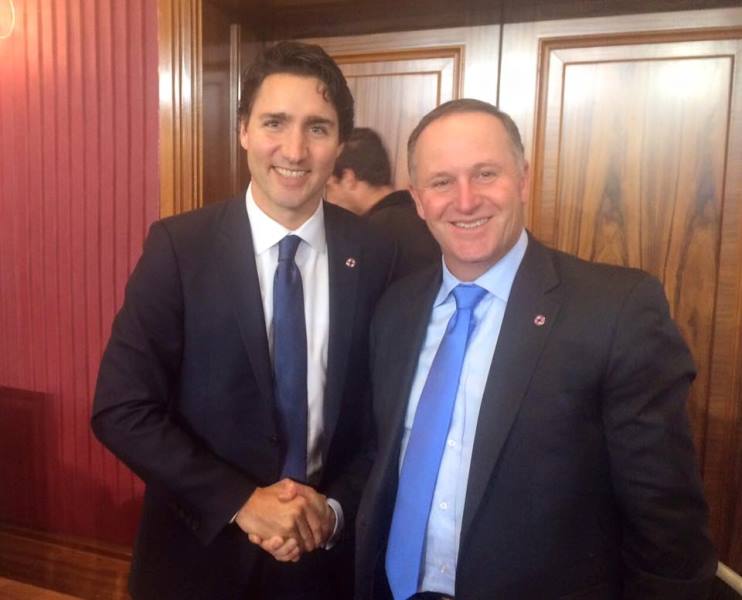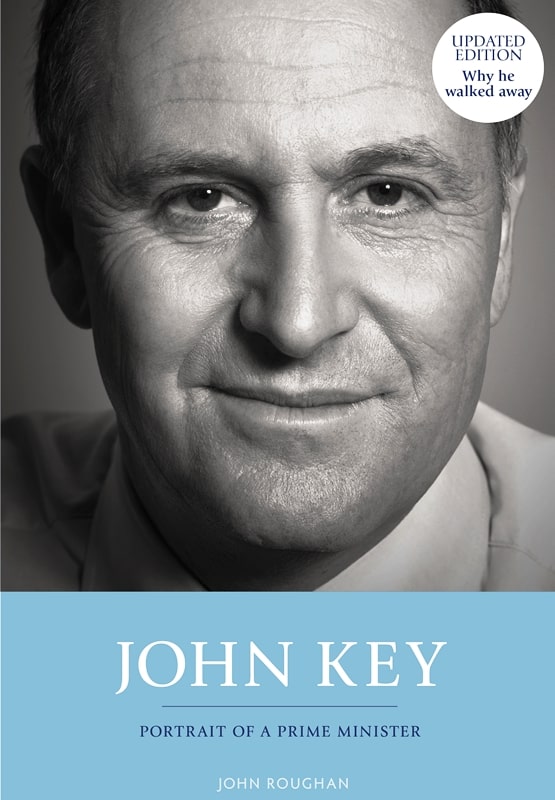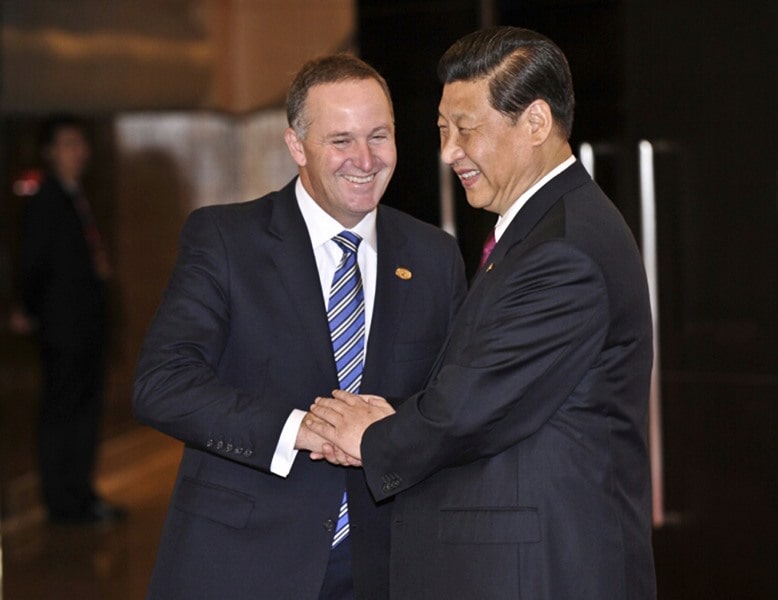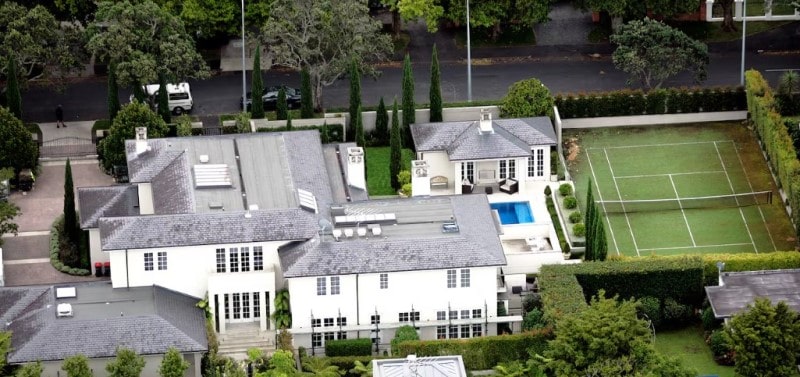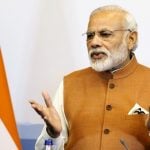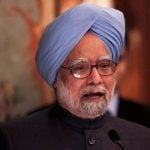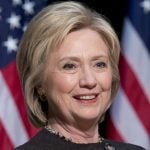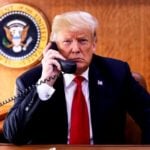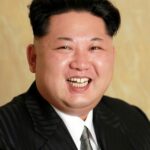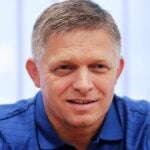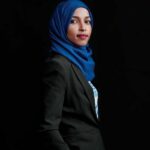John Key Age, Wife, Children, Family, Biography
Quick Info→
Age: 62 Years
Hometown: Christchurch, New Zealand
Wife: Bronagh Key
| Bio/Wiki | |
|---|---|
| Full Name | John Phillip Key |
| Other Name | Sir John Phillip Key |
| Nickname | Tellon John |
| Profession(s) | Politician, Businessman |
| Famous for | Serving thrice as the Prime Minister of New Zealand |
| Physical Stats & More | |
| Height (approx.) | 5' 10" (178 cm) |
| Eye Colour | Hazel Green |
| Hair Colour | Salt and Pepper |
| Politics | |
| Political Party | National Party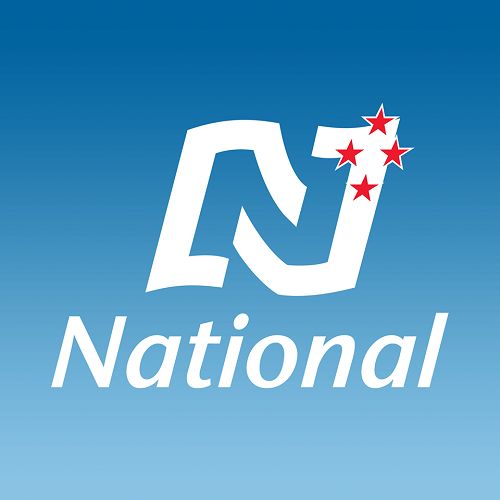 |
| Political Journey | • Defeated National Party MP Brian Neeson to be chosen as the candidate for the Helensville constituency (2002) • Contested and won the general elections on National Party's ticket from the Helensville constituency (2002) • National Party Parliamentary leader Don Brash promoted him to the Opposition front seats (2004) • Became National Party's spokesman for finance (2004) • Served as the Leader of the Opposition (27 November 2006 - 19 November 2008) • Served as the 11th Leader of the National Party (27 November 2006 - 12 December 2016) • Became the Prime Minister for the first time (2008) 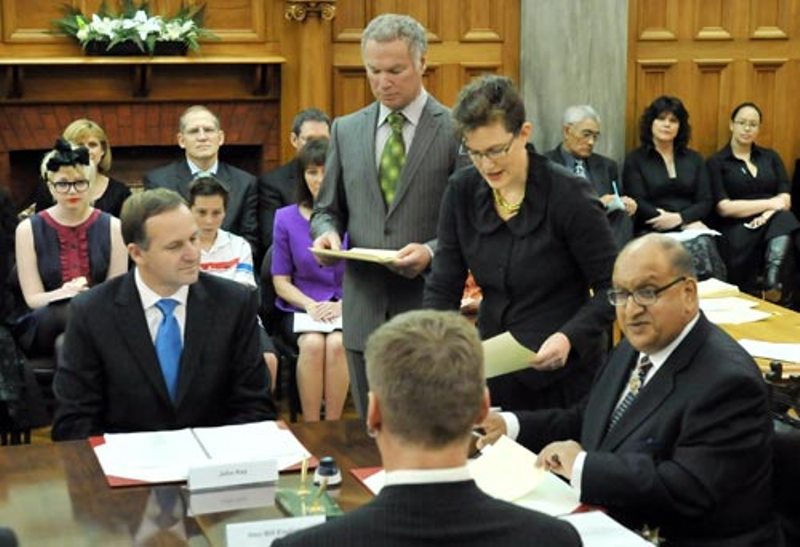 • Won the general elections and became Prime Minister for the second time (2011) • Won the general elections and became Prime Minister for the third time (2014) 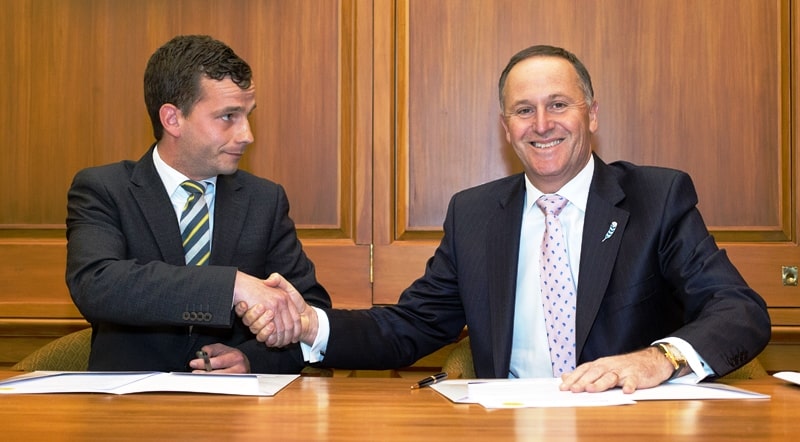 • Served as the Chairperson of the International Democrat Union (21 November 2014 - 21 February 2018) 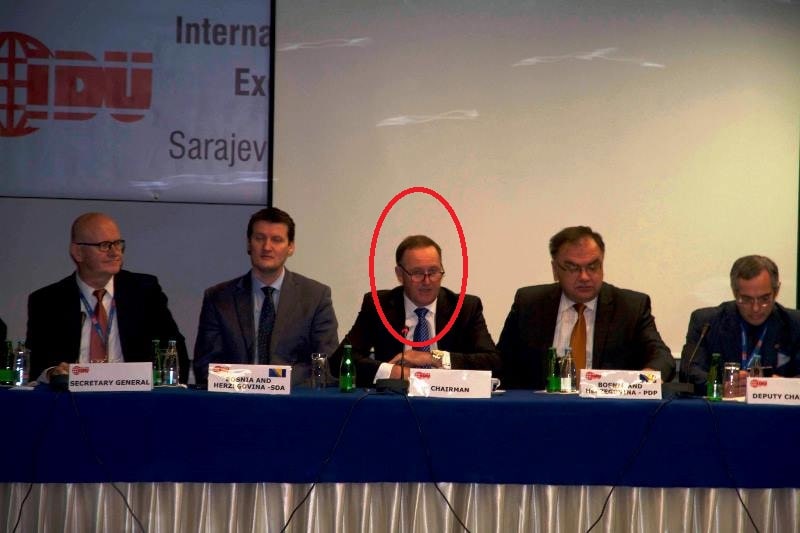 • Resigned as the Prime Minister and the Leader of the National Party (12 December 2016) |
| Awards, Honours | • The Right Honourable (3 August 2010) • Appointed a Knight Grand Companion of the New Zealand Order of Merit (2017) 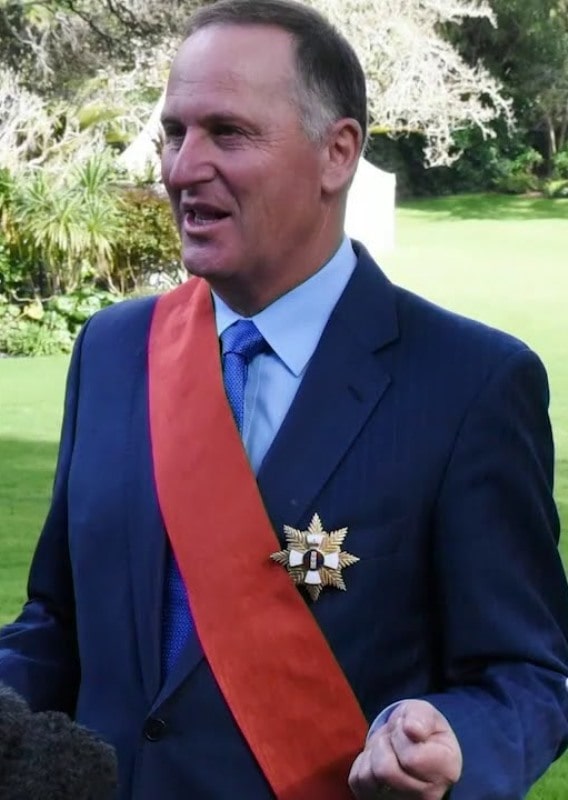 • Appointed as Honorary Companion of the Order of Australia for contributing to Australia-New Zealand relations (2017) 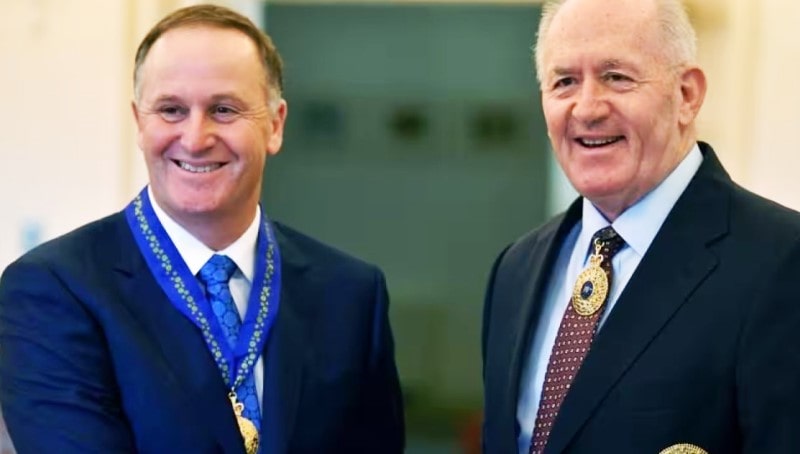 • Honorary Doctorate in Commerce from University of Canterbury (2017) 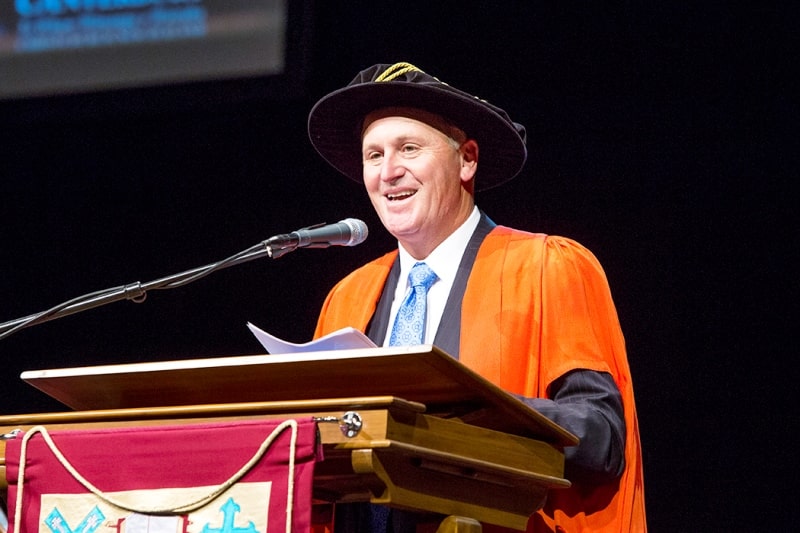 |
| Personal Life | |
| Date of Birth | 9 August 1961 (Wednesday) |
| Age (as of 2023) | 62 Years |
| Birthplace | Auckland, New Zealand |
| Zodiac sign | Leo |
| Signature | 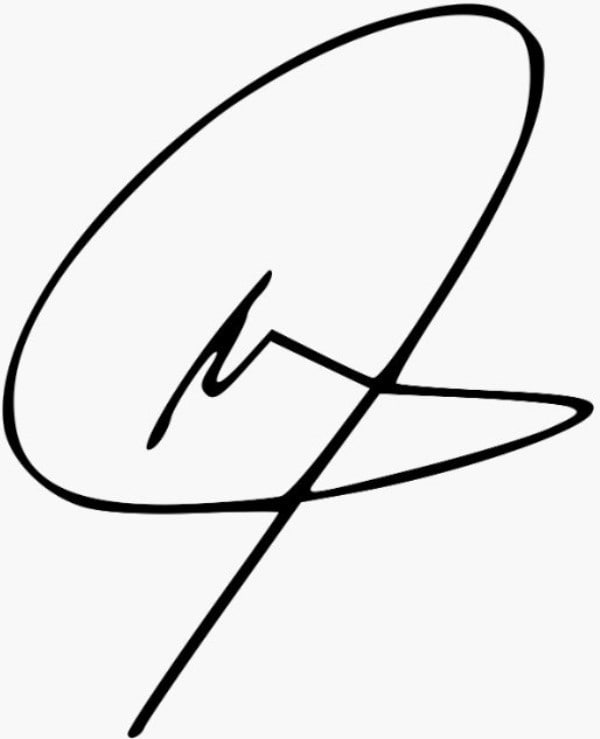 |
| Nationality | New Zealander |
| Hometown | Christchurch, New Zealand |
| School | • Aorangi School Rotorua, New Zealand • Burnside High School, New Zealand (1975-1979) |
| College/University | • University of Canterbury, New Zealand • Harvard University, United States |
| Educational Qualification(s) | • B.Com in Accounting at University of Canterbury • Management studies courses at Harvard University |
| Religious Views | Agnostic |
| Food Habit | Non-vegetarian |
| Hobbies | Reading, Travelling, Playing Golf |
| Controversies | Audio Tape Scandal In 2012, an audio tape, recorded by a freelance journalist named Bradley Ambrose, was released. In the record, Key and one other politician were criticising the ACT Party as well as the followers of the New Zealand First supporters. The audio tape was reportedly recorded in 2011 in a café, where Key and his associate were present. The tape came to be known as the "teapot tapes." Later, Key filed a complaint against Ambrose after which the latter apologized. However, Ambrose later filed a PIL in a High Court seeking permission to release the complete audio tape in public interest. In 2015, Ambrose lodged a defamation case against Key, demanding $1.25 million. The case settled out of court by the duo in 2016. Controversy Surrounding the Use of Intelligence While serving as the Prime Minister, many sources claimed that John had used the intelligence agency GCSB for spying on New Zealand citizens, including Kim Dotcom, a hacker sought by the USA. However, Key denied the allegations and claimed that he had no idea about it. He was also accused of "shoulder tapping" the Director General of the agency due to his personal relations with Key. Accused of Harassment In 2015, an Auckland-based waitress filed a complaint against John claiming to have been harassed by him. The issue arose when Key had visited a restaurant of which a video went viral in which he was seen "playing" and "pulling" the ponytails of the waitress. He later issued an apologetic statement. Criticised for Taking Part in a "Sexual Abuse Stunt" In 2015, he received criticism for participating in an act at a show. In the show, he was asked enter a steel cage and pick up a bar of soap, an act intended to make fun of sexual abuse of inmates in the prisons. This action of his was criticised by Survivors of Sexual Abuse New Zealand, an NGO. [1]The Guardian Accused of Fraud In 2024, the stake holders of a California-based company named Palo Alto Networks filed a complaint against John Key and other directors of the company, alleging illegally selling of shares of the company. However, Key denied the allegations as baseless and claimed innocence. [2]Radio New Zealand |
| Social Media | • Instagram |
| Relationships & More | |
| Marital Status | Married |
| Affairs/Girlfriends | Bronagh Key (politician, consultant)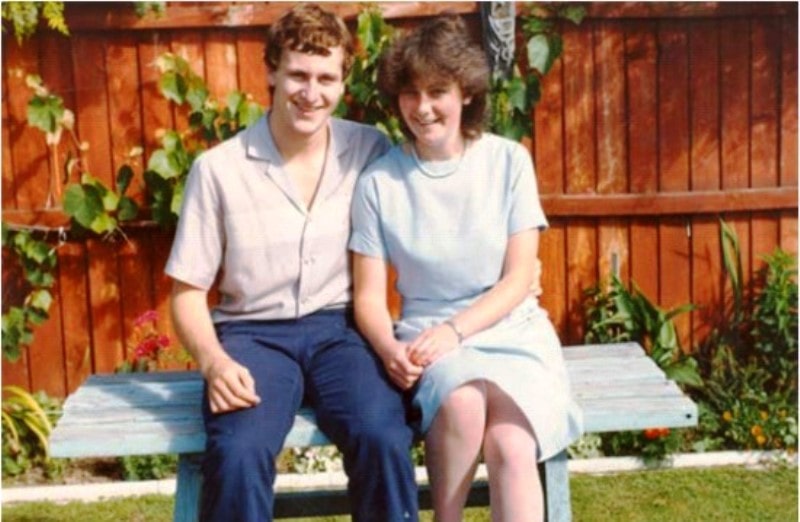 |
| Marriage Date | 1 December 1984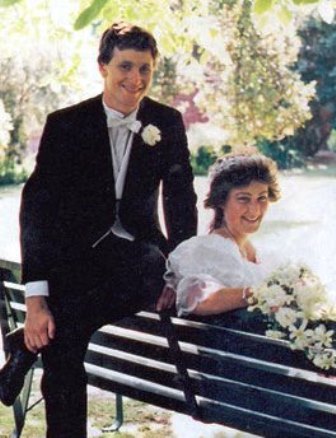 |
| Family | |
| Wife/Spouse | Bronagh Key (politician, consultant)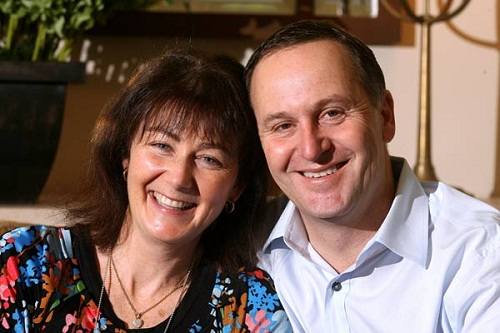 |
| Children | Son- Max Key Daughter- Stephie Key 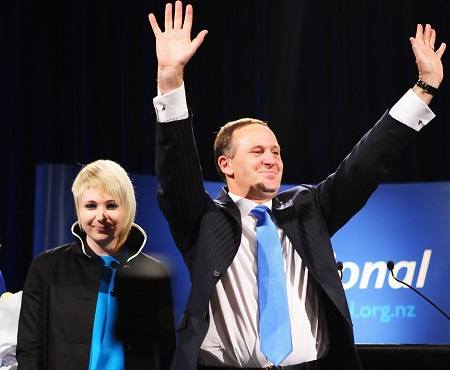 |
| Parents | Father- George Key (died of a heart attack in 1967; retired military personnel) Mother- Ruth Key  |
| Siblings | Half-Brother(s)- 2 • Peter Key (elder) 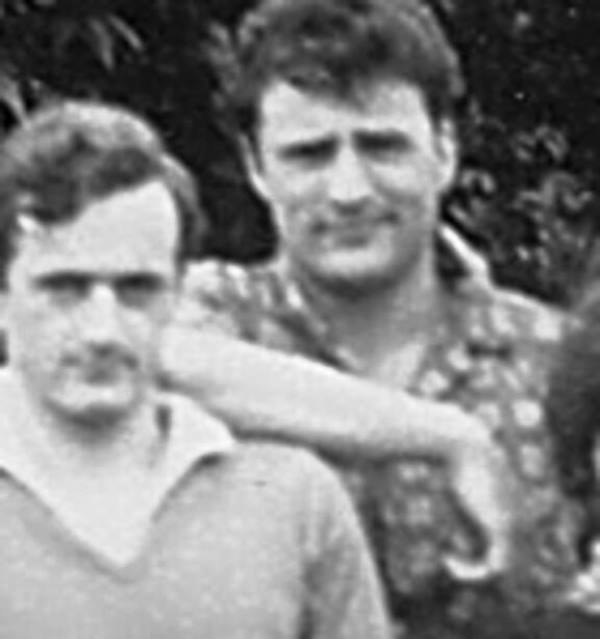 • Martyn Key (elder; lives in the UK)  Sister(s)- 2 • Elizabeth Key (also known as Liz) • Susan Key (also knowns as Sue) |
| Favourites | |
| Food | Bluff oysters, Seafood, Raspberries, Curry |
| Quote | "You get out of life what you put in to it" |
| Style Quotient | |
| Car Collection | Bentley Continental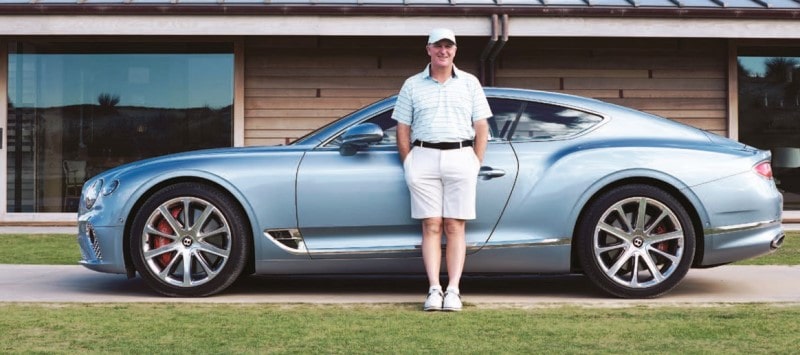 |
| Favourites | |
| Pension (approx.) | $57,000 per year + other allowances (as the former PM of New Zealand) (as of 2023) |
| Assets/Properties | An apartment in McMahons Point, Australia ($5.7 million)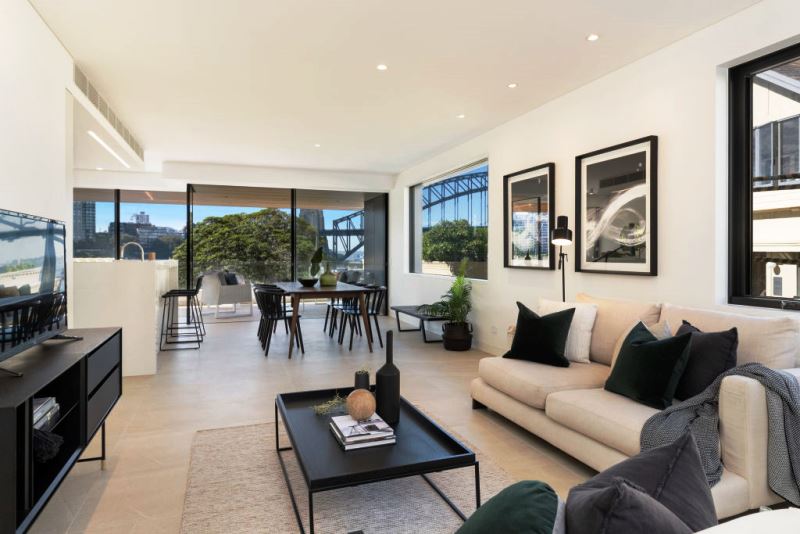 |
| Net Worth (approx.) | $60 million (as of July 2016) |
Some Lesser Known Facts About John Key
- John Key’s father George Key was an English immigrant and veteran of the Spanish Civil War and World War 2.
- His father was reportedly an alcoholic and passed away when John was just 8 years old.
- Key and his two sisters were brought up in Christchurch in the Bryndwr suburb by their mother.
- While studying in school, Key developed an interest in speech contests and won many accolades in different competitions.
- Before the end of school, he organised a house party, which was attended by not only his classmates but also by other teenagers living in his residential locality. When his mother came to know of it, she was unhappy with John.
- His parents did not observe religion in their household. He talked about it, in an interview, and said,
Religion was not really a big part of our household.”
- His Mother was an Austrian Jewish immigrant; Key is the third premier of New Zealand to have Jewish ancestry, after Julius Vogel and Francis Bell.
- Key met his wife Bronagh when they were both students at Burnside High School.
- Max is the new night-time radio host for George FM and is also a singer.
- He took up a job for the first time in 1982 as an auditor at McCulloch Menzies.
- Thereafter, John took up a job as a project manager at the Lane Walker Rudkin, a sports equipment manufacturing company. He worked there for two years.
- In 1985, John Key began working at Elders Finance, a foreign exchange company, in Wellington as a dealer.
- After working as a dealer for two years, John was promoted to the post of head foreign exchange trader. He, however, left the organisation in 1988.
- In the same year, he joined the Bankers Trust in Auckland. He worked in the organisation till 1995.
- In 1995, he relocated to Singapore, where he joined Merrill Lynch, an American investment management and wealth management division of Bank of America. There, he worked in the post of head of Asian foreign exchange.
- In the same year, he relocated to London, United Kingdom, where he was promoted to global head of foreign exchange at Merrill Lynch.
- As per sources, there he had an annual salary of US$2.25 million a year (approximately NZ$5 million at 2001 exchange rates).
- Even though Key was working in the corporate sector, he had often showcased his likeness to pursue a career in politics.
- By 1998, John Key had become a well-known face in New Zealand. Therefore, the then-president of the New Zealand National Party sought to include him in the party.
- In 1999, John Key joined the New York Federal Reserve Bank as a member of its Foreign Exchange Committee. He worked there till 2001.
- In 2002, he contested his first Parliamentary election from the Helensville electorate and won over his nearest rival Gary Russell, a member of the Labour Party, by a margin of 1,705 votes.
- As per sources, John Key purchased a $630,000 residential palace in Helensville before the elections to connect with the voters. He, however, never stayed in the house.
- Despite his securing a victory in the 2002 elections, the National Party lost.
- In the same year, National Party Presidential Elections were held in which Don Brash stood against Simon William English, who had recruited Key into the party. Brash reportedly offered Key the position of finance spokesman to vote for him. However, Key voted for English, who lost the election.
- Since there were fewer National Party Members of the Parliament, Key was given many roles including that of the financial spokesperson.
- As the Opposition Front Bencher, he often went against the then Minister of Finance Michael Cullen. At first, the National Party was unsure about placing Key against Cullen due to the latter’s decades of experience as a parliamentarian.
- In 2003, John became the deputy finance spokesperson of the party in the parliament.
- In the same year, he spoke in favour of the United States-led NATO’s invasion of Iraq and asked the government to send troops to their assistance saying “New Zealand was missing on all the action.” He, however, contradicted his statement in 2007, saying that he also would not have sent the army to Iraq.
- In 2004, he was appointed as the finance spokesperson.
- In the same year, he voted against the civil union legislation. Later, he voted in favour of increasing the legal age for purchasing alcohol in New Zealand.
- In the 2005 National Elections, John managed to retain his seat in the parliament by defeating his nearest rival Judy Lawley by a margin of 12,778 votes.
- After winning the polls in 2005, Key became the National Party’s supported Prime Ministerial choice.
- Later, Brash, due to his decreased popularity in the party owing to several reasons, announced John to be his successor.
- In 2007, he received criticism from the Labour Party of New Zealand after he refused to sign the Therapeutic Products and Medicine Bill which he had earlier agreed to sign.
- On 25 July 2008, Key was enlisted to the New Zealand National Business Review (NBR) Rich List for the first time. He had a total wealth of NZ$50 million, making him the richest New Zealand Member of Parliament.
- In the same year, John was one of the few politicians who voiced his opinion in favour of allowing same-sex couples to adopt a child.
- As the opposition leader, John proposed to retain the retirement funds of the Kiwibank employees, which had previously been slated for disposal through a bill. He has also supported implementing policies to make student loans interest-free and providing free-of-cost primary education.
- He used to support the removal of “justified use of corporal punishment” under the Child Discipline Bill as a defence for the parents. He, however, changed his stance later and called for allowing the cops to decide on registering a case against the parent at their discretion, depending upon the level of force used.
- In the Parliamentary elections held in 2008, John Key received 20,547 more votes than his nearest Labour Party candidate Darien Elizabeth Fenton and won it.
- Before the election, John promised voters to triple their tax reduction. However, he backtracked on this promise after a report from the New Zealand Treasury suggested weak economic growth in 2008.
- The National Party allied with other parties such as the classical-liberal ACT Party in 2008 and formed a government in the centre. Following this, he became the Prime Minister.
- According to sources, several senior officials of the National Party attempted to negotiate a deal with minority parties to form a government but were unsuccessful. However, Key played a crucial role in allying with them and establishing a government.
- Soon after taking the office of the Prime Minister, Key implemented numerous economic policies to uplift the economy during the 2008 global recession. The policies aimed at lowering the income tax, producing more employment, and reducing inflation.
- Key received criticism from the opposition and the public after his government increased the Goods and Services Tax (GST), backtracking from his earlier promise of not increasing it.
- To reduce the fiscal deficit the government incurred, it reduced Radio New Zealand’s annual funding. The government also did not renew the agreements of many news-providing organisations such as TVNZ 6, TVNZ 7, Kidzone, and Heartland.
- After Brash resigned from his post as the leader of the National Party in 2008, Key contested an in-party election for the post and was elected without any opposition.
- As his stature within the party grew, Key played an important role in sidelining Brash as well as his loyalists. He also managed to persuade Gerry Brownlee, deputy leader appointed by Brash, to make English deputy leader and finance spokesman of the party.
- He later addressed a caucus in which he talked about his party’s objectives of addressing the issue of the “underclass citizens” and providing food in schools in poor localities.
- In January 2009, John Key injured himself after tripping and falling while exiting a stage. He broke his right arm.
- In the same year, two protestors grabbed and assaulted Key. The incident happened while he was visiting the Ngāpuhi Te Tii Waitangi Marae island to attend an event. The assaulters were later taken into custody by the cops. He spoke about it and said,
When I got out of the car a couple of young guys tried to thump me. Waitangi Day is about dialogue and understanding each others’ points of view, not thumping each other.”
- John was one of the minds behind the conception of the New Zealand Cycle Trail project. His government initially allocated NZ$50 million for the first phase of the project.
- John presented a bill in the parliament seeking the restoration of honorific titles such as knighthoods and damehoods, which the previous government removed. The bill was passed later.
- In June 2010, Key visited the United States of America, where he met President Barack Obama, Bill Clinton, and important United Nations (UN) members seeking their support for New Zealand’s bid for the United Nations Security Council (UNSC). He also visited other countries that were permanent members of the council.
- It is claimed that his visit to the United States laid the foundation for signing the Wellington Declaration on 4 November 2010. This declaration called for a close civil-military relationship between them.
- In the same year, Key supported the United Nations (UN) Secretary-General Ban Ki-moon’s climate conservation movement.
- He later asked his party workers to work on reducing carbon emissions and campaign for the effects of Global Warming.
- As the Prime Minister, Key played a vital role in improving the functioning of the Australia, New Zealand, and United States Security Treaty, also known as the ANZUS or the ANZUS Treaty.
- The New Zealand media gave him the nickname Tellon John in 2011.
- In the same year, he established the Canterbury Earthquake Recovery Authority (CERA) after a huge magnitude earthquake hit New Zealand causing a lot of destruction. His efforts earned him a lot of appreciation from the public and the international community as well.
- He received criticism after he decided to replace the government cars with new BMW cars. This came at a time when the New Zealand economy was declining.
- He was considered to be a close confidante of Queen Elizabeth II. On his recommendation, Lieutenant General Jerry Mateparae was appointed by Elizabeth as the Governor General of New Zealand in 2011.
- In November 2011, before the Genera elections, John claimed that the American Standard & Poor’s (S&P), a credit-determining company, had revealed that if the National Party was removed from power, the long-term foreign currency rating of New Zealand would decline from AA+ to AA.
- Even though the National Party was elected, the foreign currency rating was reduced by S&P and Fitch Group. This impacted the credibility of John Keys.
- In 2012, he ordered law enforcement agencies to begin the extraditing procedure of popular hacker Kim Dotcom after the US lodged an official plea with his government.
- In 2013, he expressed support for same-sex marriage and voted for the Marriage (Definition of Marriage) Amendment Act.
- In the same year, he gave a speech at the UNSC, where he claimed that Spain and Turkey had bribed poor African countries in the form of monetary aid to influence them to vote for them to become members of the council.
- In April 2013, John Key visited the People’s Republic of China (PRC), where he met Xi Jinping.
- In the same year, he, along with his family, spent a weekend with Queen Elizabeth II at her Balmoral Castle in the United Kingdom.
- During a post-meeting press conference, he said that New Zealand would support the United States’ decision to go to war against North Korea. He, however, changed his stance later stating that “the chance of New Zealand troops entering North Korea was so far off the planet.”
- He played a crucial role in signing the Trans-Pacific Partnership in 2015. He later extended the agreement to Asia and signed it with many Asian-Pacific countries.
- In the same year, his popularity as the Prime Ministerial choice of the New Zealanders decreased considerably to 39%; the lowest since he took over the post.
- In 2014, after becoming the Prime Minister of New Zealand for the third time, he created the Cabinet National Security Committee and the Ministry of National Security and Intelligence.
- He also left the charge of the Government Communications Security Bureau (GCSB) as well as the New Zealand Security Intelligence Service (NZSIS). These organisations earlier used to be under the direct control of the Prime Minister.
- When John visited the G20 summit in Brisbane in 2014, he reportedly criticised Russian President Vladimir Putin for his actions in Syria and annexing Crimea from Ukraine.
- In 2015, Key’s government conducted voting in the country regarding a change in the national flag. Two referendums were conducted, and in both, the people voted in favour of keeping the existing flag. He was criticised by many people for wasting money and other natural resources over it.
- In the same year, he ordered the New Zealand Army to deploy some of its troops to Iraq to provide training to the Iraqi forces fighting against ISIS.
- In 2016, John received criticism as the housing prices in New Zealand increased more than thrice during his third tenure as the Prime Minister. He was also criticised as he failed to refer to the matter as a “challenge” than a “crisis.”
- John Keys met with the Australian Prime Minister Malcolm Turnbull in February 2016. They signed an agreement which allowed citizens of New Zealand to acquire Australian citizenship if their wages were five times more than the average wage in Australia.
- In May 2016, a poll was conducted to determine how many people believed Key had the housing crisis under control. Only 20 per cent of people voted in his favour.
- In November of the same year, Key became the first Prime Minister of New Zealand to allow a United States Navy ship to dock in the country. The approval was made under the New Zealand Nuclear Free Zone, Disarmament, and Arms Control Act 1987.
- He consumes alcoholic beverages occasionally.
- John does not smoke tobacco. He has led many anti-smoking campaigns in New Zealand. He once revealed his mission of making New Zealand smoke-free by 2025.
- In the later tenure of his Prime Ministership, the international trade of New Zealand increased manifolds, especially in the Asia-Pacific region. This was a result of signing multiple trade agreements including the Trans-Pacific Partnership (TPP) and the Trans-Pacific Strategic Economic Partnership (TPSEP).
- Later, he signed the TPP agreement with the United States and Canada. The United States withdrew from the agreement in 2017 after Donald Trump became the President.
- In December 2016, John Key resigned from his post as Prime Minister citing that he wished to spend more time with his family.
- He later announced that he would leave his seat in the parliament six months before the 2017 general elections. To avoid wastage of national resources on conducting a by-election on his seat.
- Air New Zealand Limited appointed him as a member of its board of directors on 1 September 2017. He served there till 31 March 2020.
- in 2017, an author named John Roughan published a biography titled John Key: Portrait of a Prime Minister.
- He became the ANZ Bank New Zealand Limited’s chairman on 18 October 2017.
- John Key has often voiced his opinion in favour of privatising government-owned institutions.
- He has changed his position on New Zealand’s monarchy/republic status. Before becoming Prime Minister, he called for a referendum on the issue. However, in 2009, he stated that “a New Zealand republic would not happen under his watch.”
- He criticised the New Zealand government in 2019 over its decision to completely lockdown the country and not allow overseas citizens to return during the COVID-19 pandemic. He called the government’s decision “a step closer to becoming North Korea.”
- In the same year, he talked about increasing the rate at which vaccination was being done to combat COVID-19. He also asked the government to only allow vaccinated citizens at government places and give the vaccinated citizens monetary incentives to motivate others to get the vaccine.
- John Key also presented a “five-point plan” to the government to contain the outbreak of the pandemic in 2019. This plan was endorsed by many.
- He sold his mansion in Auckland for $23.5 million in December of the same year.
- In 2020, John supported the End of Life Choice Act 2019. The reason for supporting it was seeing his mother struggle with Alzheimer’s before passing away.
- He received a lot of criticism from the international community after he remarked against the visit of Nancy Pelosi, the speaker of the U.S. House of Representatives, to Taiwan. He called it an “unnecessary provocation to China.”
- The United States has often expressed its dissatisfaction with Key’s closeness with the Chinese Premiere Xi Jinping. Key has also spoken in favour of China’s controversial One China Policy under which it considers Taiwan its part.
- Although he claims to be an agnostic, he often visits church with his family. He also does not believe in the ideology of an afterlife.
- According to sources, John has invested a lot of money in different types of blind trusts (a trust in which the shareholders do not know who owns how many shares).
- In 2022, John Key merged his MTK Capital, a real estate company, with Stonewood Group and co-founded StonewoodKey Capital. He initially invested $20 million in the company and had set an aim to raise the company’s profits to $100 million by 2023.
- In 2023, John Key sold his seven-bedroom luxurious mansion on Saint Stephens Avenue, in Parnell, for approximately $16.3 million.
References/Sources:

